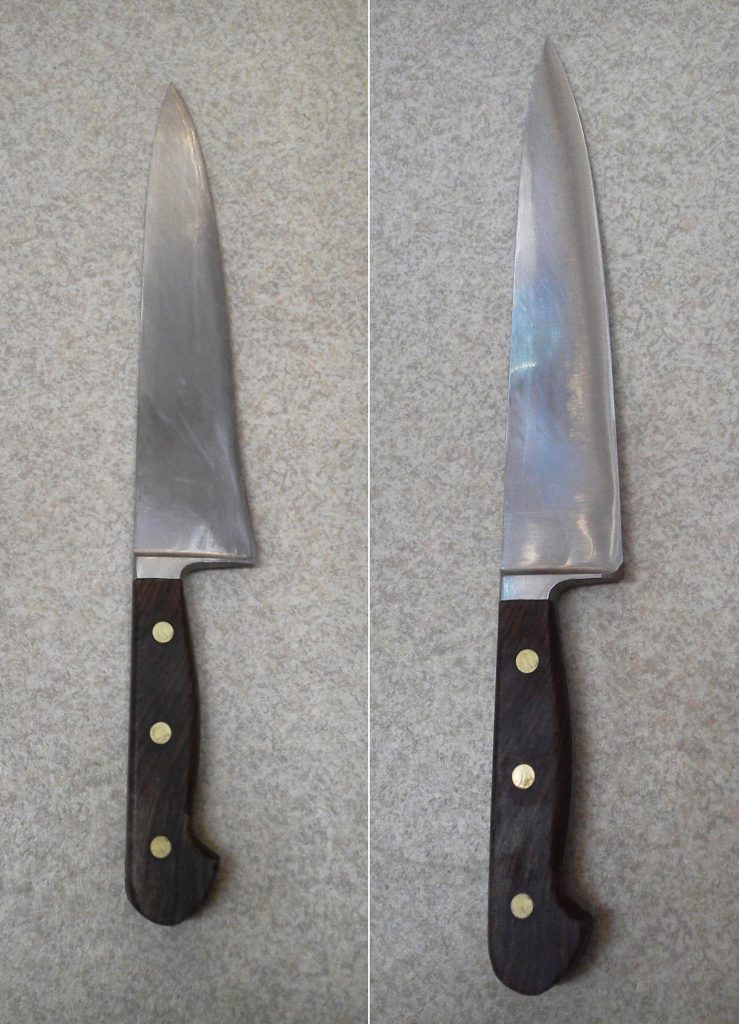

2023.09.22

I
It is not that they cannot cut.
It is that they are not made to cut.
A long time ago, I was asked by the Japanese distributor of a world-renowned German kitchen knife manufacturer to re-finish the edge of a kitchen knife. I advised the other German manufacturer that such a sharpness would not be accepted in the Japanese market, but they would not listen to me, saying that it was not necessary because it was not for shaving one’s face.
They did not listen to me. Japan has a Galavagosized food culture, and it is rare in the world for a people to cook such delicate food, so the demand for sharpness in kitchen knives is high.
In order to meet such a demand, the first priority is to keep the blade sharp even at the cost of sharpness.
A kitchen knife that can cut has a thin blade, so there is a risk that it will chip easily, but a knife with a thick blade has the advantage of being hard to chip, even though it is not sharp.
However, knives with thicker cutting edges have the advantage that they are harder to chip, even though they are not as sharp. For customers who are dissatisfied with the sharpness of their existing cheap knives and come to our store, we recommend that they use the conventional hard-to-sharpen knives for hard foods because better knives have thinner edges and can cut better but are also prone to chipping. We recommend them to use the conventional hard knives for hard food.
In Japan, which has formed its own food culture, hard steel knives have been carefully sharpened with a whetstone and used in delicate cooking methods. However, with the spread of Japanese cuisine around the world, Japanese chefs brought Japanese kitchen knives all over the world, and their sharpness became the new standard, and Japanese kitchen knives began to attract worldwide attention because they were no longer satisfied with the sharpness of conventional German knives.
In response to this situation, Germany’s largest kitchen knife manufacturer now produces 80% of its products in its Japanese factory. Partly because the president of the Japanese subsidiary is a kitchen knife geek.
They now have top-level finishes.
A rare wooden handle era Henckels Pro S repair brought to our company.
The protrusion of the blade edge has been corrected.
*This is a translation by a translation tool.
© 2022 Kamata Hakensha All Rights Reserved.